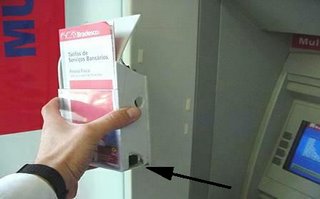Here is what they had to say:
The bank can change the interest rate and other terms at any time, for no reason, and you get stuck with a higher interest rate on purchases you already made. You mail the bill before it's due, but get hit with a late fee anyway. You sign up for a 7% interest rate, but it goes to 27% if you bounce a check, go over the limit, or miss payments.
Congressional elections are coming up. Let’s tell our members of Congress -and their challengers- that we want better treatment. Demand sensible reforms for credit cards!
These credit card "gotchas" aren't just happening to you. A recent Government Accountability Office report shows that one fifth of credit card holders pay an interest rate of 20% or more. Even if you have a lower rate, it can go up at any time, for no reason. The report also found in just a year, more than one third of consumers were charged a late fee averaging $34! And, credit card companies are still raising interest rates based on whether the consumer missed a payment to a different creditor. Every year, bills to reform credit card practices are introduced but not passed. To learn more, click here.
Link to Consumer Union article, here.
This made me wonder how many times a victim of identity theft is hit with higher interest rates because they were compromised and negative data was erroneously (wrongfully) put on their credit report?
The answer is probably pretty scary and how much "extra revenue" could financial institutions be making as a result of this?
Then consider how much personal and financial information has been breached at financial institutions - where "everything was kept as quiet as possible" and we were told the victims were compensated.
As I've said before -- no business is in the business of losing money -- and the costs associated with fraud (in reality) are passed on to everyone.
Perhaps if more "sensible laws" on this matter were passed - financial institutions would have to protect people's personal and financial information a little better to maintain their profitability?
The latest tally of people breached (courtesy of the Privacy Rights Clearinghouse) is 95,000,000 - and some might argue - when we see those being breached "being very tight-lipped," the true figure might be higher.
Here is a post, I did on how fraud costs are misplaced:
Are We Addressing Cyber Crime from the Wrong End

